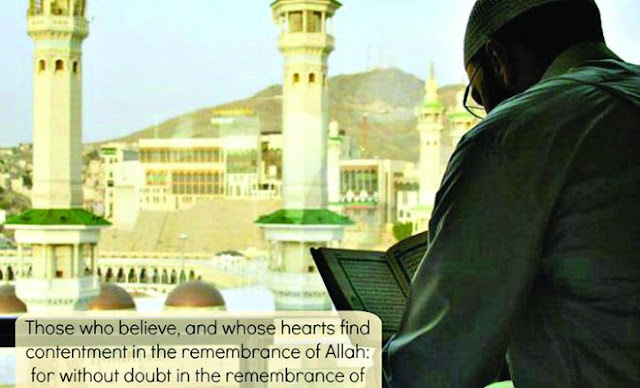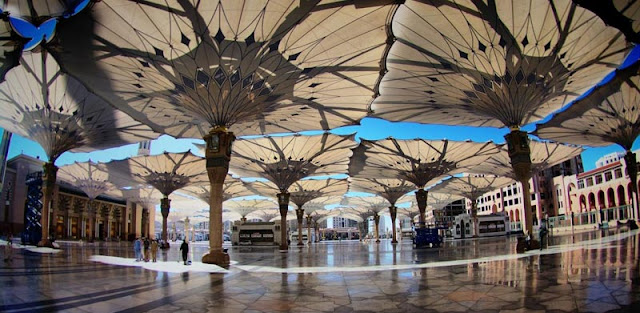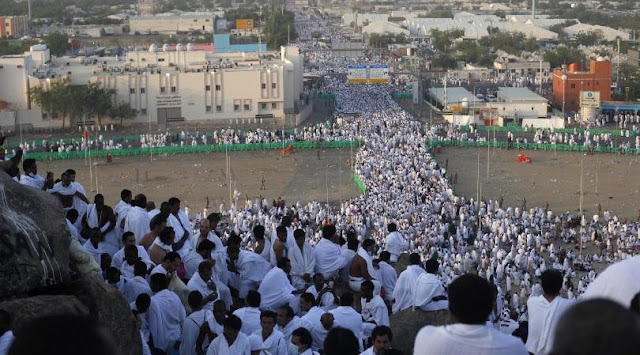The quest for true happiness
HAPPINESS is the ultimate goal in life for almost all of us. It is the motive behind every action that is taken in this world.People eat, shop, study, work, marry or sometimes fall into forbidden relationships, go on vacations, throw lavish parties and sometimes go to weird, forbidden extremes just for the pursuit of happiness and delight. Eventually, there comes a time when they realize that these feelings are short-lived, temporary and bound to end at some point. So the question that arises is; what is it that gives one the feeling of everlasting happiness? What is it that would tend to make the heart content and at ease despite the day to day tests and hardships that life throws our way?
Simply put, true happiness is in realizing the purpose for which we were created. It is in worshipping the One who created us, that gives the hearts contentment and delight. It is in doing every action with the sole intention of gaining Allah’s pleasure, avoiding His Anger while following in the footsteps of His beloved Messenger (peace be upon him).
Imam Ibn Al-Qayyim, said, “In the heart are disorders that cannot be remedied except by responding to Allah. In it is a desolate feeling that cannot be removed except by intimacy with Him in solitude. In it is sadness which will not leave except by happiness of knowing Him and truthfulness in his dealings. In it is anxiety that is not made tranquil except by gathering for His sake and fleeing to Him from His punishment. In it is a fire of regret which cannot be extinguished except by satisfaction with His commands, prohibitions, and decrees, and embracing patience with that until the time he meets Him. In it is a strong desire that will not cease until He is the only one who is sought. In it is a void that cannot be filled except by His love, turning to Him, always remembering Him, and being sincere to Him. Were a person to be given the entire world and everything in it, that would never fill the void.” (Madarij Al-Salikeen)
No doubt, this is the only reason our hearts are so much at peace and our souls so exuberant during Ramadan. It is because we spend the whole month busy in doing what we were created to do! We feel happy despite staying without food and water all day and despite exerting ourselves for extra prayer and worship.
We can actually maintain this state of peace and contentment throughout the year if we persist in continuing all the good acts that we do during Ramadan. The Creator and Master of everything that exists says in His Glorious Book: “Those who believe, and whose hearts find contentment in the remembrance of Allah: for without doubt in the remembrance of Allah do hearts find contentment.” (Qur’an 13:28)
The contentment and openness of the heart are aspects of happiness which are achieved through keeping up the remembrance of Allah and through following the teachings of the Qur’an. It is something that instills happiness in us not just during the moments in which it is done but also later on. This is because; every type of pleasure is enjoyed only once, except for (the acts of) worship, which is enjoyed three times: when you do it, when you remember it, and when you are given the reward for it. (Abd-Allah ibn Wahb)
Allah tells us in more than one place in the Qur’an that the faces of the ones who believed and did righteous acts for His sake will be glowing with happiness and delight. He says: “(Some) faces, that Day, will be bright — Laughing, rejoicing at good news (of reward and Jannah).” (Qur’an 80:38-39).
“Faces, that Day, will show pleasure. With their effort (they are) satisfied. In an elevated garden (Jannah)…” (Qur’an 88:9-11)
As believers we need to know and have strong belief in the fact that life will not be a bed of roses for long and that we will be tested and tried till we reach our graves. If we look at the people around us, we will see people who are being tested in one way or the other. It will be either by missing out on something that they like, or going through that which they dislike.
Ibn Mas’ood (may Allah be pleased with him) rightly said: For every moment of joy there is a moment of sorrow, and no house is filled with joy but it will be filled with sorrow.
Beautiful is the dua that the Prophet (peace be upon him) taught us. He said, “If any Muslim is afflicted with distress and makes this dua, then his supplication will be answered: ‘O Allah, I am your servant, the son of your servant, the son of your maidservant. My forelock is in your hand, your command concerning me prevails, and your decision concerning me is just. I call upon you by every one of the beautiful names with which you have described yourself, or which you have revealed in your Book, or you have taught to anyone of your creatures, or which you have chosen to keep in the knowledge of the unseen with you, to make the Qur’an the delight of my heart, the light of my chest, the remover of my sadness and dispeller of my anxiety.’”
The Prophet (peace be upon him) said, “If he says this, Allah will remove his affliction and replace it with joy and happiness.” His They said, “O Messenger of Allah, should we not learn it?” The Prophet (peace be upon him) said, “Yes, whoever hears it should know it.” (Ahmad 3704)
Lastly, we need to understand is that happiness is the spiritual experience of living every minute doing good for the sake of Allah, it is in being grateful for whatever we have and in utilizing it all in being of service to the creation of Allah. May Allah grant us the happiness of this world and the next. Ameen.
Source: arabnews.com



